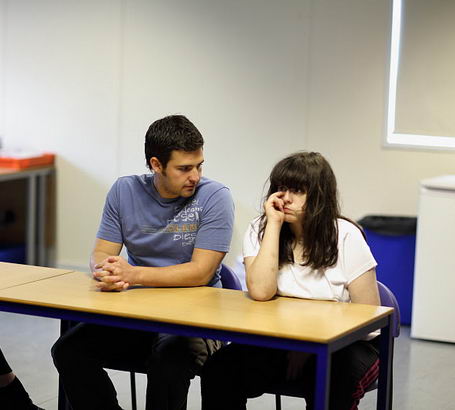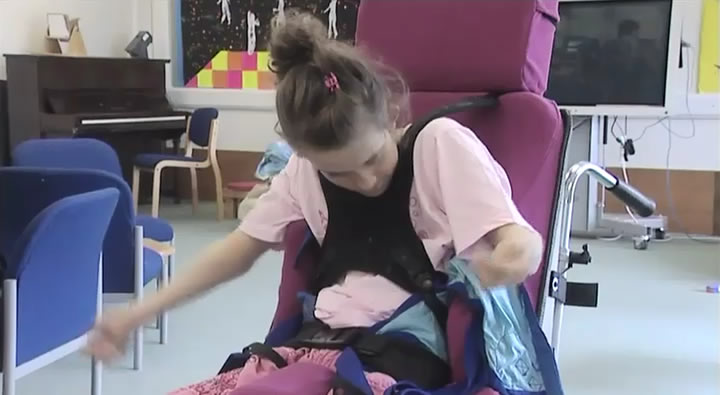
A sensitive, responsive caregiver is one who sees the world from the child's point of view and seeks to meet the child's needs.
Responsiveness and sensitivity are important in many different ways in the classroom. Not only must teachers and other carers be skilled at teaching, they also need a wide range of skills in relation to nurturing, settling and carrying out care and comfort routines, such as feeding.
Watch this clip in which this clip in which a teacher works with patience and sensitivity to help Kimmy, a child with complex needs to choose the drink she would like.
What needs to be in place for such an interaction to take place?
What are the benefits for Kimmy?
What are the benefits for the teacher?
Could you work with such patience and sensitivity?
Your answers to the questions on the previous screen may have included the following:
- Carrying out this task relies on a strong relationship that has been developed over time between Kimmy and her teacher
- The teacher needs to understand how Kimmy communicates
- She needs to give Kimmy time to respond
- She needs to understand how to feed Kimmy safely, in this case checking that she has finished the first mouthful before offering another
- The teacher is rewarded by seeing how the care she gives enables Kimmy to be as independent as possible
